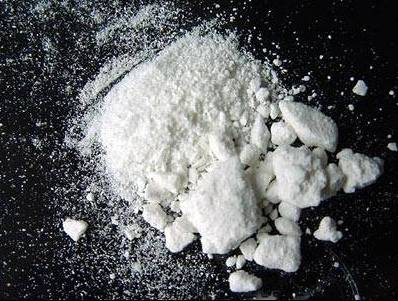The Effects of Cocaine Use on its Users
Across the United States, citizens abuse many different drugs in order to obtain a high that elevates their mood. While these drugs are all extremely serious, cocaine is an especially dangerous substance that over one-and-a-half million Americans use, despite the negative effects and consequences resulting from its abuse ("About.com"). Many cocaine users are drawn to the drug after experiencing unhealthy influences in their childhood such as unstable families and neighborhoods. Searching for euphoric feelings, an excited state, and increased sociability to escape the devastating influences, cocaine users are often unable to break the addiction that is simultaneously destroying their bodies (Arkangel). By choosing abuse cocaine, users enter a debilitating three step process that consists of depression, addiction, and withdrawal. A serious problem that cocaine causes in its users is depression. When cocaine is taken, it circulates through a person’s bloodstream and eventually reaches the brain and its pleasure receptors. The cocaine then increases the levels of neurotransmitters in the brain, such as serotonin and dopamine, which in turn cause the user to experience feelings of extreme pleasure, known as euphoria (Arkangel). After the drug begins to wear off, these neurotransmitter levels once again return to their normal state, and sometimes lower, leading to extreme depression and a craving for more cocaine ("NIDA"). Depression resulting from cocaine use is so severe that according to the Board Certified Psychiatric Pharmacist, W. Alexander Morton, "cocaine has been found to be present in as high as 18% to 22% of [suicide] cases" (Morton). Without cocaine to replenish the depleted amounts of serotonin and dopamine in a user’s brain, the person will suffer from high emotional stress and anxiety. These feelings of depression may frequently lead to a dependency on cocaine as the only way to elevate a person’s mood, which will eventually turn into a binding addiction (Hayon).
After a person decides to take more cocaine in order to raise his mood, the user enters a long struggle in the form of addiction. The change in the amount of dopamine in a cocaine abuser’s brain causes the abuser to form a bond with cocaine, taking increasing amounts of the drug in order to relieve his depression. As the brain adapts to the effects of the cocaine, a tolerance is built up, forcing the individual to intake higher doses of the drug in order to retrieve the euphoric feeling ("NIDA"). With depression continually worsening and the urge to take cocaine increasing, Dr. Michael Bozarth of Concordia University states that "cocaine is at least as addictive as heroin" (Eckholm). While cocaine abusers continue to supplement their addictions, the habit will lead to digestive problems, a breakdown of the central nervous system, physical deterioration, or even death within its users (Cocaine). If an addict decides that he needs or wants to remove himself from the addictive cycle, he must enter the last stage of cocaine use, withdrawal.
When a cocaine addict chooses to end their addiction, the individual must experience an immediate process known as withdrawal. When an addict’s body craves more cocaine but does not receive it, the user begins to experience an emotional and physical decline that can last from a few hours to several days (Hartley). While going through withdrawal, the individual may experience sleep disturbances, depression, nausea, shaking, and muscle pain as a part of the healing process ("Symptoms"). The depression experienced during withdrawal is very enduring because, according to W. Alexander Morton, "serotonin [is] thought to be significantly lowered due to the chronic depletion caused by cocaine use" (Morton). In cases of daily use of cocaine, individuals may even experience the effects of withdrawal for months following the last period of use, in which case many of those suffering use sedatives or alcohol to ease their pain ("Cocaine Withdrawal").Withdrawal can be exceptionally painful and dangerous, yet it is the final step in the cocaine addiction process that may result in an addict’s ability to eliminate their dependency on cocaine forever.
The decision to use cocaine or not is an event that may dramatically impact a person’s life in various ways. Whether an individual is influenced by a negative neighborhood or by an unhealthy family environment, cocaine use is a dramatic event that can destroy a human’s life if it is not controlled, addressed, and corrected. As lives across the nation and the world are affected by cocaine and the consequences of its use, humans continue to suffer as the drug overtakes individuals and all aspects of their lives. By choosing abuse cocaine, users enter a debilitating three step process that consists of depression, addiction, and withdrawal.
Works Cited
"About .com: Alcoholism." About.com. The New York Times Company, Sep 2009. Web. 20 Oct 2010. http: //alcoholism.about.com/cs/coke/f/coke_faq03. htm
Arkangel, Carmelito. "Cocaine Abuse." eMedicineHealth. WebMD. Inc., 08 Oct 2005. Web. 20 Oct 2010. http ://www.emedicinehealth.com/cocaine_abuse/page2_em
"Cocaine." The Columbia Encyclopedia, Sixth Edition. 2008. Encyclopedia.com. 24 Oct. 2010 <http://www.encyclopedia.com>.
"Cocaine Withdrawal." Medicine Plus. U.S. National Library of Medicine, 19 Aug 2010. Web. 24 Oct 2010. <http://www.nlm.nih.gov/medlineplus/ency/article/000947.htm>.
Eckholm, Erik. "Cocaine's Vicious Spiral: Highs, Lows, Desperation." NYTimes.com. The New York Times, 17 Aug 1986. Web. 24 Oct 2010. <http: //www./nytimes.com/<http://<http://www.nytimes.com/1986/08/17 /we eki nreview/cocaine-s-vicious-spiral-highs-lows-desperation.html>.
Hartley, Elizabeth. "What to Expect from Cocaine Withdrawal." About.com. The New York Times Company, 12 Aug 2010. Web. 24 Oct 2010. <http ://addictions.a bout.com/od/cocaine/a /W hat-To-Expect-From-Cocaine-Withdrawal.htm>.
Hayon, Rachel. "The Symptoms of Addiction Withdrawal-Different Drugs, Different Dangers." Addiction Search. Addiction Search, 23 Oct 2010. Web. 24 Oct 2010. <http ://www.<http://www.addicti onsearch.com/treatment_articles/article/the-symptoms-of-addiction-withdrawal-different-dru gs-different-dangers_67.html
Morton, W. Alexander. "Cocaine and Psychiatric Systems." PubMed Central. National Center for Biotechnology Information, 8 July 1999. Web. 24 Oct 2010. <http ://www.ncbi.nlm.nih.gov /pmc/articles/PMC181074
"NIDA InfoFacts: Cocaine." National Institute on Drug Abuse. National Institute on Drug Abuse, Mar 2010. Web. 24 Oct 2010. <http://www.nida.nih.gov/Infofacts/cocaine.html>.
"Symptoms of Cocaine Withdrawal." WrongDiagnosis. Health Grades Inc., 6 Oct 2010. Web. 24 Oct 2010. <http: //www.wrongdiagnosis.com/c/cocaine_withdrawal/symptoms.htm>.


